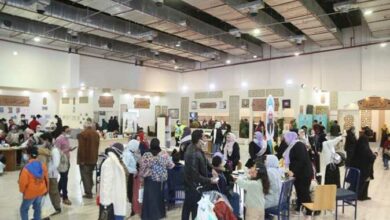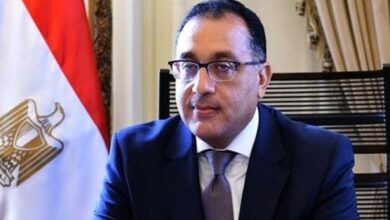In order to reach its potential, Egypt must first develop the base of its economy, which currently lacks raw materials and intermediates, says Karim Helal, CEO at the Abu Dhabi Islamic Bank who heads the industry reactivation session.
Reactivating industry was one of the major and central issues during the Euromoney conference's sessions as it involves several problems related to funding, the availability of suitable environment and the government's contradicting economic decisions.
“Are we on the right track or still stumbling?” Helal wondered in exclusive statements to Egypt Independent. “Egypt is not yet an industrialized country in the common meaning of the word. The basis for industry and industrialized state is to possess industrial grounds of raw materials and intermediates, noting that most of Egyptian products are aimed for export and rely on imported raw and intermediate materials.”
Here in Egypt, we need 12 million school backpacks, Helal says, but unfortunately the vast majority of those are procured via imports since Egypt lacks the raw and intermediate materials at home. This applies to many products, Helal says, such as diapers. “Most of the industries in Egypt are light because we are not securing the intermediates required. We have to invest in that respect so as to enjoy genuine growth in local industry,” he said.
Helal added that conferences and forums should go beyond the discussion of investment problems and incentives to handle the domestication of sustainable industries that support other productions. “Egypt is a big country that is home to about 90 million local consumers-tourist consumption excluded and holds the key to African markets. Yet, we are not producing enough for all those consumers and markets,” he argued.
Helal says that Egypt's industry has witnessed a severe slowdown over the past three years due to the atmosphere that followed the 25 January revolution. He attributes the slowdown to financing problems, protests and clashing economic decisions by the government that had negative impacts on the industrial performance, extending to local and foreign investors alike.
Despite the surrounding environment, Helal says, there is optimism among investors, “We are beginning to take the right path, but still need the final effective touches that achieve Egypt's leap forward. Egypt remains an investment-attractive country with capabilities for new, viable investments. We can say that we are waiting for improvement in the ‘Egyptian playground.’ Once that improvement, stability and clear vision exist, local, Arab and foreign investments will flow.”
Speaking of government debts which compete with private sector investors, Helal said that situation became endemic in Egypt three years ago because investing in government debts is more lucrative and attractive for investors and investment funds.
“When the economy moves forward, and it is qualified for that at present, and when tourism is back to its normal growth rates, the immediate need for bridging state budget will reduce and recede sharply. Thus, banks will return to financing investments and industries on levels higher than present,” he said.




